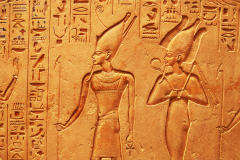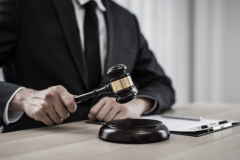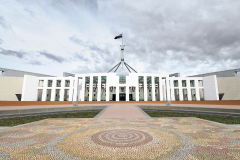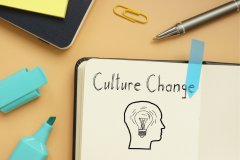HUMANITIES DOMAIN
Matt Gray
Humanities Instructional Leader
The Humanities encourages us to think creatively. They teach us to reason about being human and to ask questions about our world. We study human cultures, values and beliefs and investigate how we have got to the place we are today and where we might be heading.
Through studying the Humanities in Middle School (Year 7 & 8), you will be introduced to History, Geography, Civics & Citizenship, and Economics & Business. This will help you decide what aspects of Humanities you find most interesting, which should assist you in deciding your future subjects in this Domain.
Accounting 1-2

- Learn how accounting plays a crucial role in a business’s success
- Record financial data and prepare reports for service businesses
- Take away useful life skills for personal and business use
Subject Code: V1HAC
Year Level: 11
Unit 1: The role of accounting in business
We explore the establishment of a business and the role of accounting in the determination of business success or failure. We consider the importance of accounting information to stakeholders. Students record financial data and prepare reports for service businesses owned by sole proprietors. We analyse, interpret and evaluate the performance of the business using financial and non-financial information. Students use these evaluations to make recommendations regarding the suitability of a business as an investment.
What does this mean for me?
Students learn everyday life skills for personal and business use, including with the recording and reporting methods.
Unit 2: Accounting and decision making for a trading business
We extend your knowledge of the accounting process for sole proprietors operating a trading business. Our focus is on inventory, accounts receivable, accounts payable and non-current assets. Students analyse and evaluate these areas to suggest strategies to improve business performance. We use manual processes and ICT, (including spreadsheets), to prepare historical and budgeted accounting reports. Students consider relevant financial and other information to predict, budget and compare the potential effects of alternative strategies on the performance of the business.
What does this mean for me?
Students look at buying and selling stock, managing cash flows, managing assets and budgeting.
Through all units (where appropriate), the ethical considerations faced by business owners when making decisions (including financial, social and environmental), will be explored.
Assessment
- Case studies
- Tests
- Exams
What sort of student would like Accounting?
Someone who:
- Is looking to study Business, Commerce, Finance or management related courses
- Is considering a trade or has an interest in going into business for themselves.
Suggested Pre-Requisites
Nil
Business Management 1-2

- Investigate the negative and positive impacts of tourism
- Look at how business ideas are developed into a reality
- Research the legal requirements of establishing a business
Subject Code: V1HBM
Year Level: 11
Unit 1: Planning a business
Businesses of all sizes are major contributors to the economic and social wellbeing of a nation. Therefore, how they are formed and the fostering of conditions under which new business ideas can emerge are vital for a nation’s wellbeing. Taking a business idea and planning how to make it a reality are the cornerstones of economic and social development. We explore the factors affecting business ideas and the internal and external environments within which businesses operate, and the effect of these on planning a business.
Unit 2: Establishing a business
Our focus is on the establishment phase of a business’s life. Establishing a business involves complying with legal requirements as well as making decisions about how best to establish a system of financial record keeping, staff the business and establish a customer base. We examine the legal requirements that must be satisfied to establish a business. Students investigate the essential features of effective marketing and consider the best way to meet the needs of the business in terms of staffing and financial record keeping. We analyse various management practices in this area by applying this knowledge to contemporary business case studies from the past four years.
What does this mean for me?
Students complete fieldwork to consolidate knowledge from class on tourism and investigate the negative and positive impacts of tourism locally and globally.
Assessment
- Case study analysis
- Short answer questions
- Research tasks
- Topic tests
- Semester exam
What sort of student would like Business Management?
Someone who:
- Wishes to pursue a tertiary course in Commerce, Economics or Accounting
- Is more practically minded who may wish to work for a business after leaving school via apprenticeships or a vocational pathway, with the ultimate goal of owning and running their own business.
Suggested Pre-Requisites
Nil. However, Pathways subject Business Principles can be useful.
Geography 1-2

- Do you like to study the world around you?
- Learn to analyse and discuss global trends and phenomena
- Get out and do fieldwork investigations
Subject Code: V1HGE
Year Level: 11
Unit 1: Hazards and disasters
We examine hazards and hazard events before engaging in a study of at least two specific hazards at a range of scales. Students study one hazard from at least two different categories, for example, coastal hazards and an alien animal invasion, or floods and pandemics. Our class explores effectiveness of specific measures such as prediction and warning programs, community preparedness and land use planning, as well as actions taken after hazards become harmful and destructive disasters. We investigate the human responses to the hazards selected earlier, with reference to a variety of scales.
What does this mean for me?
Students will use the knowledge of the past natural disasters to analyse management plans for future events and investigate the risk and harm to populations in areas of natural disasters.
Unit 2: Tourism
In this unit, students explore different types of tourism and where it is found in the world as well as exploring the environmental, economic and socio-cultural impacts of different types of tourism. We investigate at least one tourism location, using appropriate fieldwork techniques, and another elsewhere in the world. Students evaluate the effectiveness of measures taken to enhance the positive impacts and/or to minimise the negative impacts at these locations.
What does this mean for me?
Students complete fieldwork to consolidate knowledge from class on tourism and investigate the negative and positive impacts of tourism locally and globally.
Assessment
- Research report
- Course work
- Class tests
- Presentation – fieldwork data collection and analysis
- End of semester exam
What sort of student would like Geography?
Someone who:
- Has an interest about the world and how humans impact on its physical environment
- Would like conducting fieldwork at a local site and collecting data to then process and present
- Is considering a career in agriculture (farming, forestry, fisheries, etc), mining, surveying, horticulture, mapping, environmental management, climatology, and urban planning.
Suggested Pre-Requisites
Nil. However, Pathways subject Geography - People and Places can be useful.
History - Ancient 1-2

- Investigate the creation of city-states and empires
- examine the invention of writing
- Look at the rise and fall of kingdoms
Subject Code: V1HHA
Year Level: 11
Unit 1: Ancient Mesopotamia
The lands between the rivers Tigris and the Euphrates have been described as the ‘cradle of civilisation’. Although this view is now contested in ancient history and archaeology, the study of Ancient Mesopotamia provides important insights about the growth of cities.
What does this mean for me?
Together we explore Ancient Mesopotamia. Our class investigates the creation of city-states and empires. Students examine the invention of writing – a pivotal development in human history. We highlight the importance of primary sources (the material record and written sources) to historical inquiry about the origins of civilisation.
Unit 2: Ancient Egypt or early China
Depending on the choice made by your teacher, your class focusses on Old and Middle Kingdom Egypt (2920- 1550 BC) or Early China (1900 BC-AD 220).
Either study is rich in historical inquiry and discovery of two of the most fascinating and enduring civilisations the world has ever known.
What does this mean for me?
Students may gain an appreciation for Egypt, a civilisation that endured for approximately three thousand years, and how great kingdoms rose, flourished and fell around the banks of the great river Nile. Or, students may grow an awareness of the foundations of civilisation in China. Here students explore the interactions between small and diverse settlements that led to the formation of rival states, to the growth of an enduring civilization, to then to the development of a series of empires.
Assessment
- Historical inquiries
- Analyses of primary sources
- Analyses of historical interpretations
- Essays
- End of semester exam
What sort of student would like History | Ancient?
Someone who:
- Is interested in knowing about the world
- Is interested in Social Science, History, Politics and Culture
- Has strong literacy and language skills, and who likes to analyse different forms of texts
- Researching careers in archaeology, anthropology, foreign affairs, politics, writing, the law, journalism, public service, social, cultural and military history and sociology.
Suggested Pre-Requisites
Nil. Pathways subjects History - Conflicts or Australia - the Good, Bad and the Ugly would help with skills development but are not essential.
Legal Studies 1-2

- Understand what’s happening in our courts and how to influence change in the law
- Gain deep insight into the operation of our justice system
- Develop skills and knowledge that will benefit a range of careers
Subject Code: V1HLS
Year Level: 11
Unit 1: Guilt and liability
Students recognise the distinctions between criminal law and civil law. Both aim to achieve social cohesion and protect the rights of individuals. Criminal law is aimed at maintaining social order and infringing criminal law can result in charges. Civil law deals with the infringement of a person’s or group’s rights and breaching civil law can result in litigation.
What does this mean for me?
Students develop an understanding of legal foundations, such as the different types and sources of law and the existence of a court hierarchy in Victoria.
We investigate key concepts of criminal law and civil law and apply these to actual and/or hypothetical scenarios to determine whether an accused may be found guilty of a crime, or liable in a civil dispute. In doing so, we develop an appreciation of the way in which legal principles and information are used in making reasoned judgments and conclusions about the culpability of an accused, and the liability of a party in a civil dispute.
Unit 2: Sanctions, remedies and rights
Criminal law and civil law aim to protect the rights of individuals. When rights are infringed, a case or dispute may arise which needs to be determined or resolved, and sanctions or remedies may be imposed. This unit focuses on the enforcement of criminal law and civil law, the methods and institutions that may be used to determine a criminal case or resolve a civil dispute, and the purposes and types of sanctions and remedies and their effectiveness.
What does this mean for me?
Students undertake a detailed investigation of two criminal cases and two civil cases from the past four years to form a judgment about the ability of sanctions and remedies to achieve the principles of justice.
We develop an understanding of the way rights are protected in Australia and in another country, and possible reforms to the protection of rights. Students examine a significant case in relation to the protection of rights in Australia.
Assessment
- Topic tests
- Structured assignments
- Course work
- End of semester exam
What sort of student would like Legal Studies?
Students who want to know and understand more about how our society operates should choose Legal Studies.
Someone who:
- Interested in concepts of equality and justice
- Wants to develop their knowledge of basic legal rights and obligations
- Would enjoy looking at the processes used in Australia to control activities and change the law
- Likes current affairs, following and understanding significant court cases
- Wants to understand more about how our society operates and enjoys class discussion.
Other considerations
Legal Studies is of interest in its own right and enhances learning skills in many areas. It is definitely not just for those seeking a career in law or criminology. It provides opportunity to develop skills and knowledge that can be applied in many aspects of our lives.
There are many courses and occupations that include units based on Legal Studies (commerce, business administration, nursing, computer courses, and the federal or state police forces.)
Suggested Pre-Requisites
Nil for Unit 1, 2 and 3. However, if you wish to study Unit 4, you must undertake Unit 3 and 4 as a sequence.
Politics 1-2

- Learn about how political actors use power to resolve issues and conflicts over how society should operate
- Investigate contemporary issues of conflict, political stability and/or change within Australia, the Indo-Pacific region and globally
- Consider how national and global political actors respond to issues and crises such as national political reform, climate change, violent conflict and human rights.
Subject Code: V1HAP
Year Level: 11
Unit 1: Politics, power and political actors
In this unit, students learn that politics is about how political actors use power to resolve issues and conflicts over how society should operate.
Unit 2: Democracy: stability and change
In this unit, students investigate the key principles of democracy and assess the degree to which these principles are expressed, experienced and challenged, in Australia and internationally.
Assessment
- Case studies
- Multimedia presentations
- Short answer question tests
- Essays
- End of year examination
What sort of student would like Australian Politics?
Someone who:
- Has an interest in current affairs: you need to keep up with political events in the media
- Has an interest in the inner-workings of government
- Has strong literacy and language skills
- Is interested in a career in politics, the public service, foreign affairs, law or journalism
- Is interested in contributing to lively political discussion.
Suggested Pre-Requisites
Nil. However, Pathways subject International Power & Politics can be useful.
Sociology 1-2

- To what extent is your experience of youth similar or different to previous generations?
- Investigate the social category of youth and the social institution of family
- Explore the topics of deviance and crime
Subject Code: V1HSO
Year Level: 11
Unit 1: Youth and family
We use sociological methodology to explore the social categories of youth and adolescence and the social institution of family. Sociologists draw on methods of science to understand how and why people behave the way they do when they interact in a group. Sociology attempts to understand human society from a holistic point of view, including consideration of its composition, how it is reproduced over time and the differences between societies. When sociologists investigate a topic, they attempt to do so with a reflective, critical mindset. Sociologists are guided by theories (or frameworks), to explain and analyse how social action, social processes and social structures work.
What does this mean for me?
Students consider the nature of sociological enquiry and the scientific potential of sociology. Students learn sociological definitions, stereotypes and categories of youth and family. Students learn philosophies and perspectives that make up the wonderful and intriguing world of sociology.
Unit 2: Social norms – breaking the code
We explore the concepts of deviance and crime. The study of these concepts from a sociological perspective involves ascertaining the types and degree of rule breaking behaviour, examining traditional views of criminality and deviance, and analysing why people commit crimes or engage in deviant behaviour. It also involves consideration of the justice system, how the understanding of crime and deviance has changed over time, and the relationship between crime and other aspects of a society, such as age and socioeconomic status.
What does this mean for me?
Students investigate the intriguing world of crime and deviance, how sociology investigates these concepts and the way they can approach research. Students discover theories, perspectives and concepts related to crime and deviance.
Assessment
- Short answer and extended response tasks on Indigenous culture and ethnicity
- Research project on a community of choice
- Extended response tasks on two social movements
- End of year external exam
What sort of student would like Sociology?
Someone who is interested in current affairs, social science, history, politics and culture.
Suggested Pre-Requisites
Nil. However, Pathways subject Sociology of Pop Culture can be useful.
